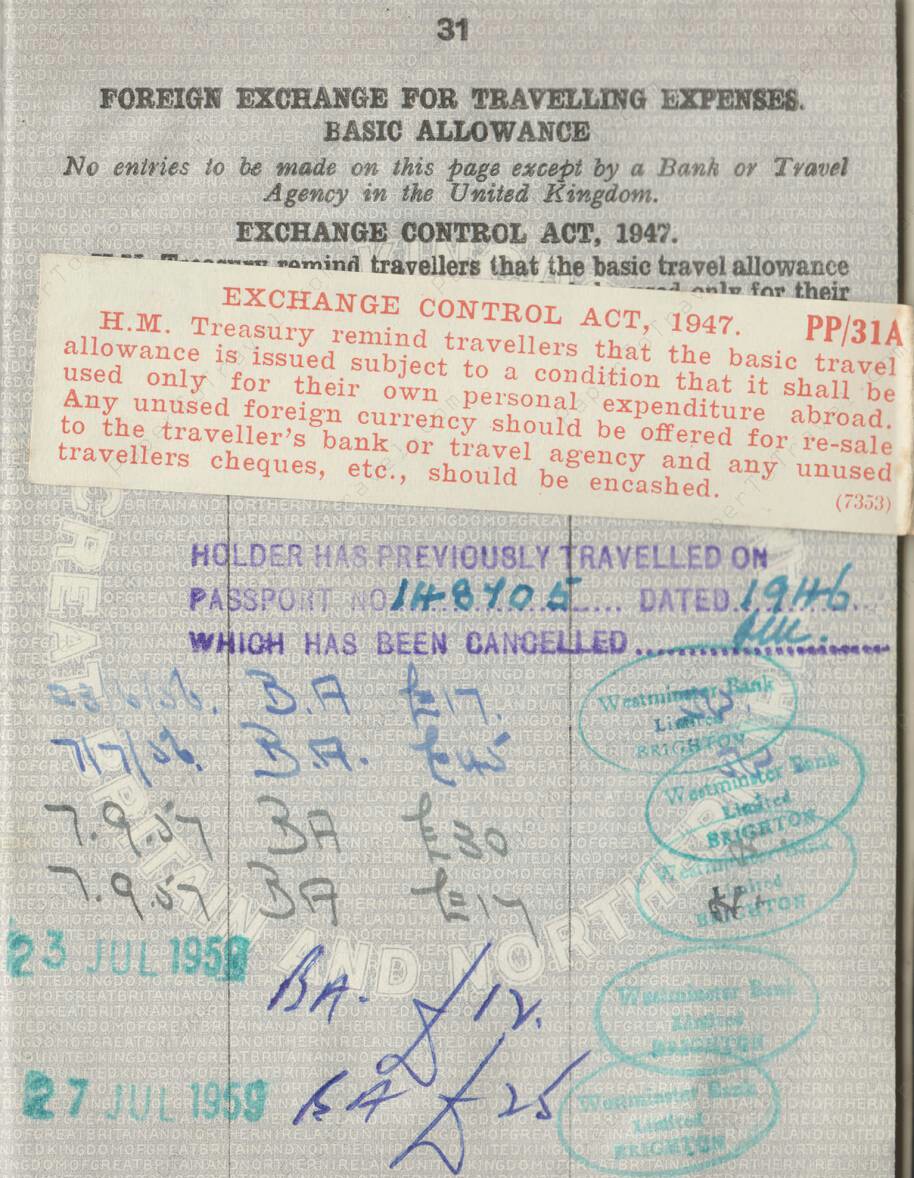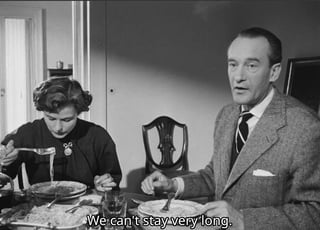Currency restrictions existed between 1939 and 1979.
The main goal of these restrictions after 1945 was to insure that enough foreign exchange was available to finance needed imports from non-sterling areas.
This meant that sterling currency that could be exchanged to foreign currency was greatly limited.
Starting 1945, this was £100 per year.
Between 1952 and 1959 it was £25 per year.
From 1966 £50 per year.
There were many exceptions and special rules, so the named sum is realistic.
In the 1960's, only package tours were really possible, since foreign exchange was needed to finance imports.
Parliament: OVERSEAS TRAVEL ALLOWANCE (Hansard, 19 June 1967)
...
Of course, it fell to the Tories in the early 1950s virtually to abolish the nonsense inaugurated by the late Lord Dalton and Sir Stafford Cripps after the war in trying to restrict what British citizens should spend abroad. We abolished it. We kept a notional limit of £250 per person per annum on the travel allowance, but anybody could have more if he wanted it.
On 20th July, 1966, the Prime Minister decided, for no economic reason as far as I can tell, to impose a £50 limit on the travel allowance for British citizens abroad. That £50 was computed thus. The total number of British citizens travelling outside the sterling area was divided into the aggregation of expenditure and it was decided that the average expenditure per person was a trifle less than £50. The Chancellor therefore decided on a £50 limit.
...
Third, it is clear that the £50 allowance greatly restricts the choice of places where British tourists can stay. The hon. and learned Gentleman may not be aware of it, but I have been looking at a booklet published by Sir Thomas Cook & Son which shows that British tourists are restricted to relatively modest hotels costing less than £3 a day. If they want to go to a better hotel, they can afford to stay for only one week. For example, France, Italy and Switzerland are very expensive countries, and many British tourists find themselves in difficulty. In Lucerne, out of 16 hotels listed, in seven of them a British tourist can only afford to stay for one week. Similarly, in Greece there are 22 hotels shown in Thomas Cook's booklet, in 12 of which British tourists can only stay for one week, the reason being that many of the hotels cost a little more than £3 a day.
...
There were some Monty Python sketchs about this topic, where the customs man asks the traveler where they got the money (foreign exchange) to buy the goods that the traveler was bringing back.

Sources:



